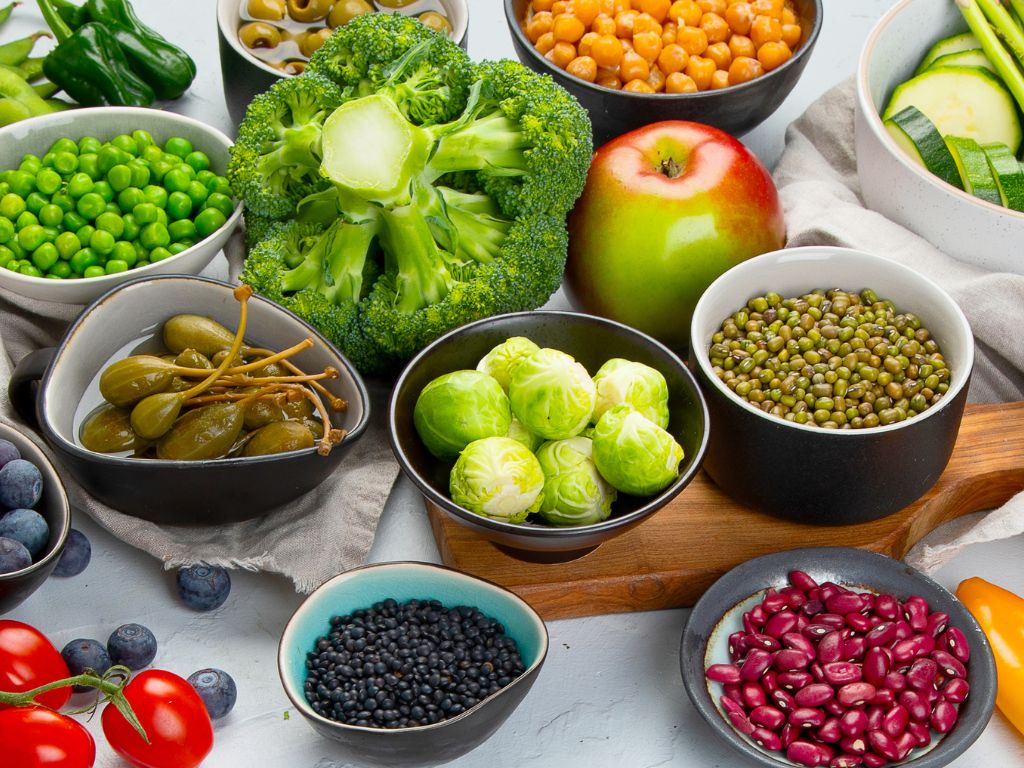It’s a debate as old as veganism itself: is plant-based eating healthy?
Some argue that vegan diets lack essential nutrients, while others point to the health benefits of cutting out animal products.
So what’s the truth? There’s no simple answer, as veganism is a lifestyle rather than a diet.
In this article, we’ll give you our take on the matter and discuss some crucial points to consider, in case you’re someone who’s considering the vegan approach.
Let’s learn!
What Is Plant-Based Eating?
So what does plant-based eating actually entail? To put it simply, plant-based eating is a diet that focuses on consuming whole, unprocessed plants.
This includes fruits, vegetables, whole grains, legumes, nuts, and seeds.
Now, you might be thinking “wait a second, doesn’t that just mean veganism?”
Well, not necessarily.
While veganism is a type of plant-based diet (one that excludes all animal products), there are many other plant-based diets out there that allow for some (though little) animal products.
For example, pescatarians eat fish and seafood in addition to plants, while flexitarians (flexible vegetarians) occasionally include meat and dairy in their otherwise plant-heavy diets.
Certainly, though, the plant-based lifestyle has its pros and cons, so let’s have a look at those.
Pros
There’s been a recent surge of interest in plant-based diets and for good reason.
With all of the delicious options now available, it’s easy to see why more and more people are making the switch.
However, there’s one key advantage that often gets overlooked: the ability to choose whether or not to consume animal products.
For some people, this is simply a matter of preference.
They may prefer the taste of plant-based foods, or they may want to reduce their impact on the environment.
Others may have ethical concerns about consuming animal products.
Whatever the reason, the plant-based diet provides a unique level of flexibility that is the plant-based equivalent of your normal “Flexible dieting” approach.
Dr. Christine Kirlew, a renowned food scientist and nutrition expert, explains plant-based eating quite simply:
“With a plant-based diet, it’s up to you whether or not to consume animal products, and the balance is mostly in favor of foods that come from plant sources”
Cons
It’s no secret that protein is an essential nutrient for human health. It plays a role in everything from muscle growth to immune function, and it can be found in a variety of food groups.
However, not all protein is created equal.
Animal foods, such as meat, milk, and eggs, tend to have the highest quality protein, while plant-based foods generally have lower levels of this important nutrient.
This is one of the biggest disadvantages of plant-based diets.
Not only do they limit the amount of animal protein that people can consume, but they also don’t provide the same quality of protein that animal foods do.
As a result, people who follow a plant-based diet may need to supplement their diet with other sources of protein, such as soy or whey powder.
What Is “Healthy Eating,” Even?
What is healthy eating? Some might say it’s about loading up on kale and quinoa, while others might argue that it’s all about balance.
But the truth is, healthy eating is about providing the body with the essential nutrients that it can’t produce on its own, from quality sources.
This means eating a variety of nutrient-rich foods, including fruits, vegetables, whole grains, lean proteins, and healthy fats.
It also means choosing foods that are minimally processed and free from harmful additives.
By following these simple guidelines, you can make sure that your body is getting the nutrients it needs to function at its best.
Is the plant-based diet the most optimal way to do this? Well, likely not. But if in your experience it’s an approach that seems easy and you can stick to it in the long term, then go for it!
And again, if that is the case, make sure to include a variety of different plant foods, because variety is key with this approach to nutrition!
Final Thoughts
So, what do you think? Are plant-based diets healthy?
There’s a lot of information out there and it can be hard to know who or what to believe.
But one thing is for sure – we all need to find the approach we can stick to in the long term.
This is what truly yields good results, both for our fitness, health, and overall quality of life.
What’s your favorite plant-based dish? Comment below!



